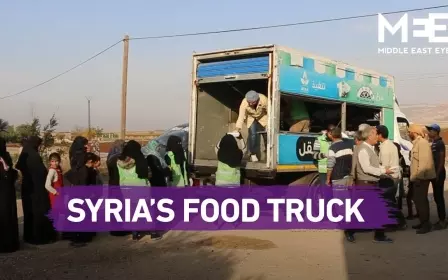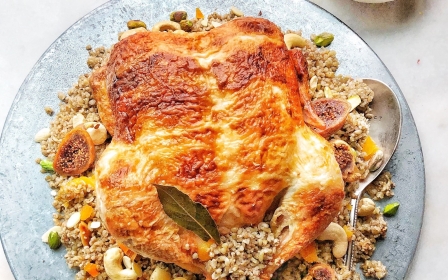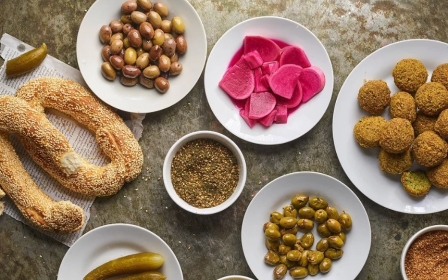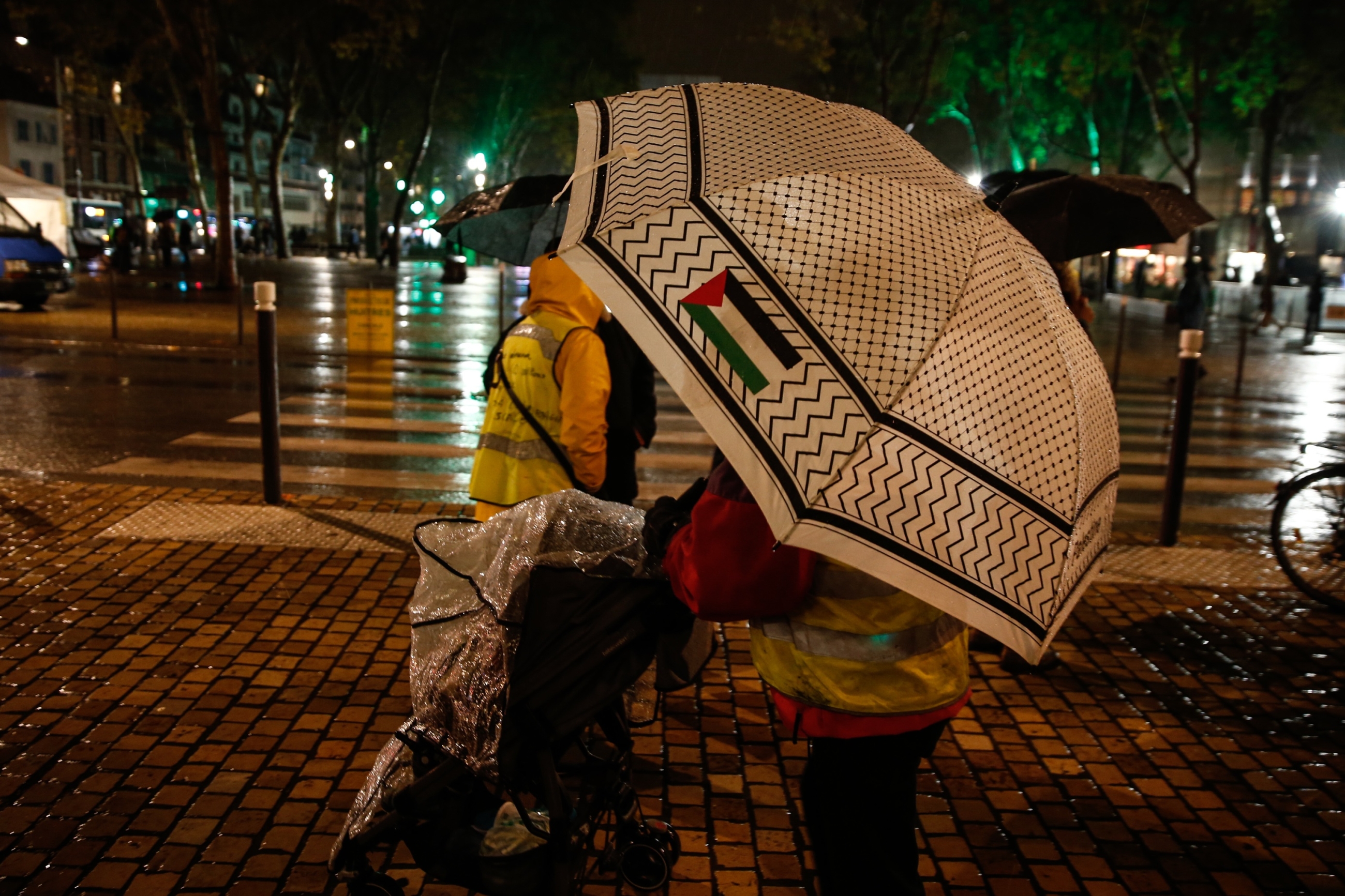
Solidarity Syrian style: Serving food and friendship in a Paris canteen
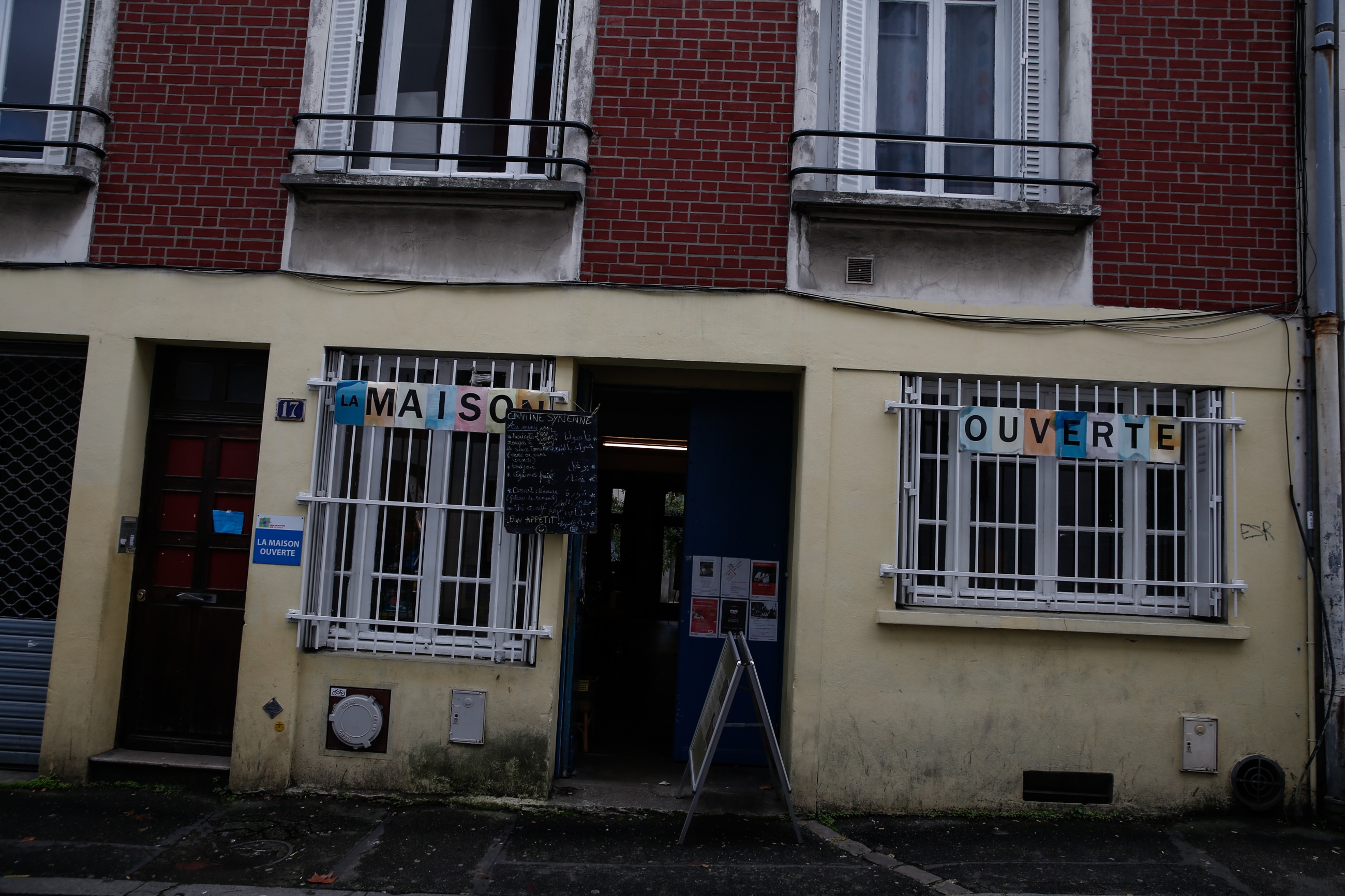
In the eastern Parisian suburb of Montreuil, a new neighbourhood initiative run by both Syrian and French volunteers aims to bring local communities closer. Launched in September at the premises of the French cultural association, La Maison Ouverte, or The Open House, this weekly "Syrian Canteen" serves traditional Syrian food every Thursday lunchtime, with optional donations. (MEE/Abdulmonam Eassa)
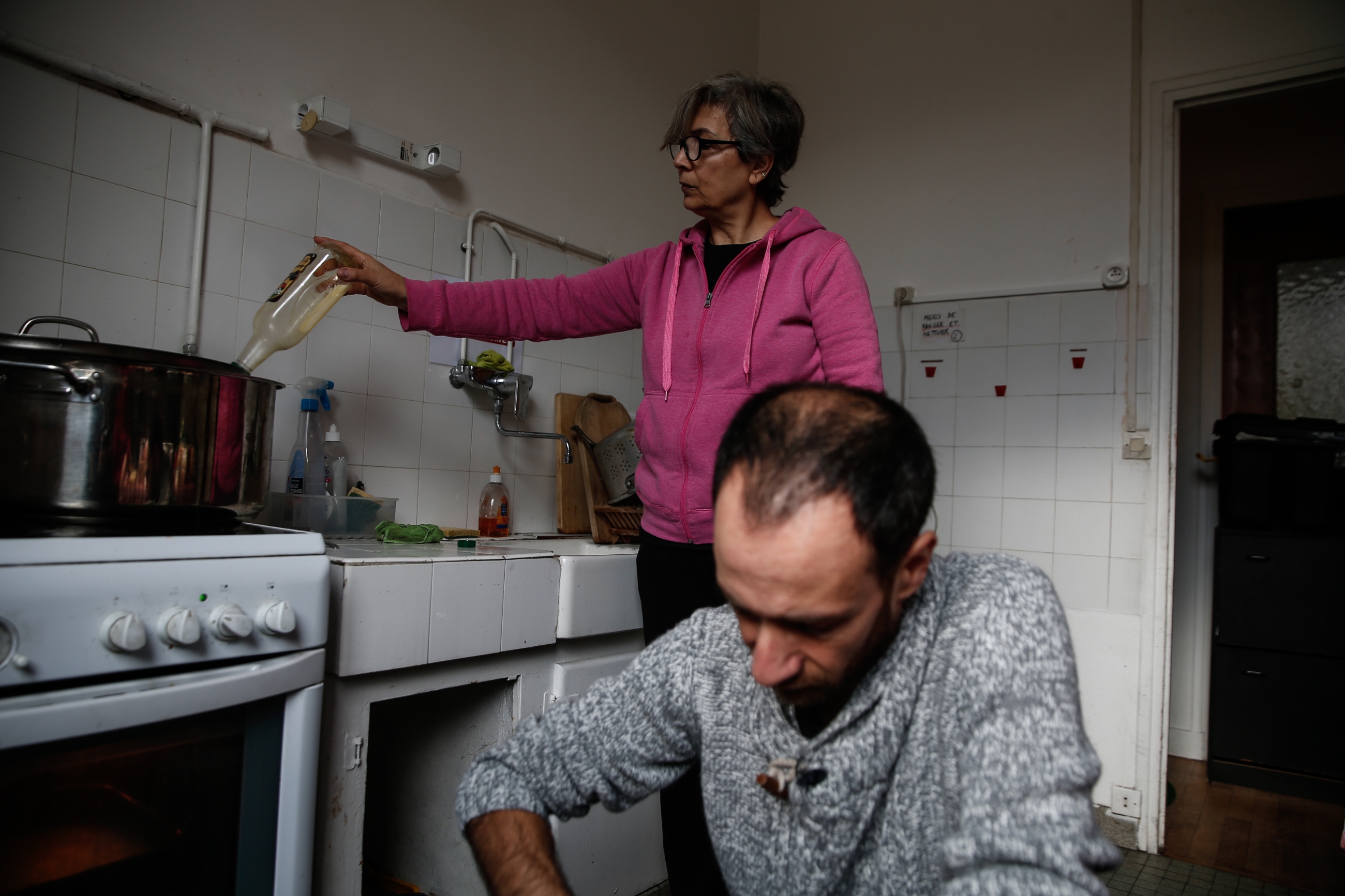
Syrians Mayada Alkibbeh and Taha Almohammad oversee the cooking, assisted by a team of volunteers. “Everyone plays a part; some cook, others help by clearing the tables and chairs when lunch is over," Mayada says. "We rotate roles each week because it's important for everyone to learn to cook, or to make the purchases, and to manage the whole team well." (MEE/Abdulmonam Eassa)
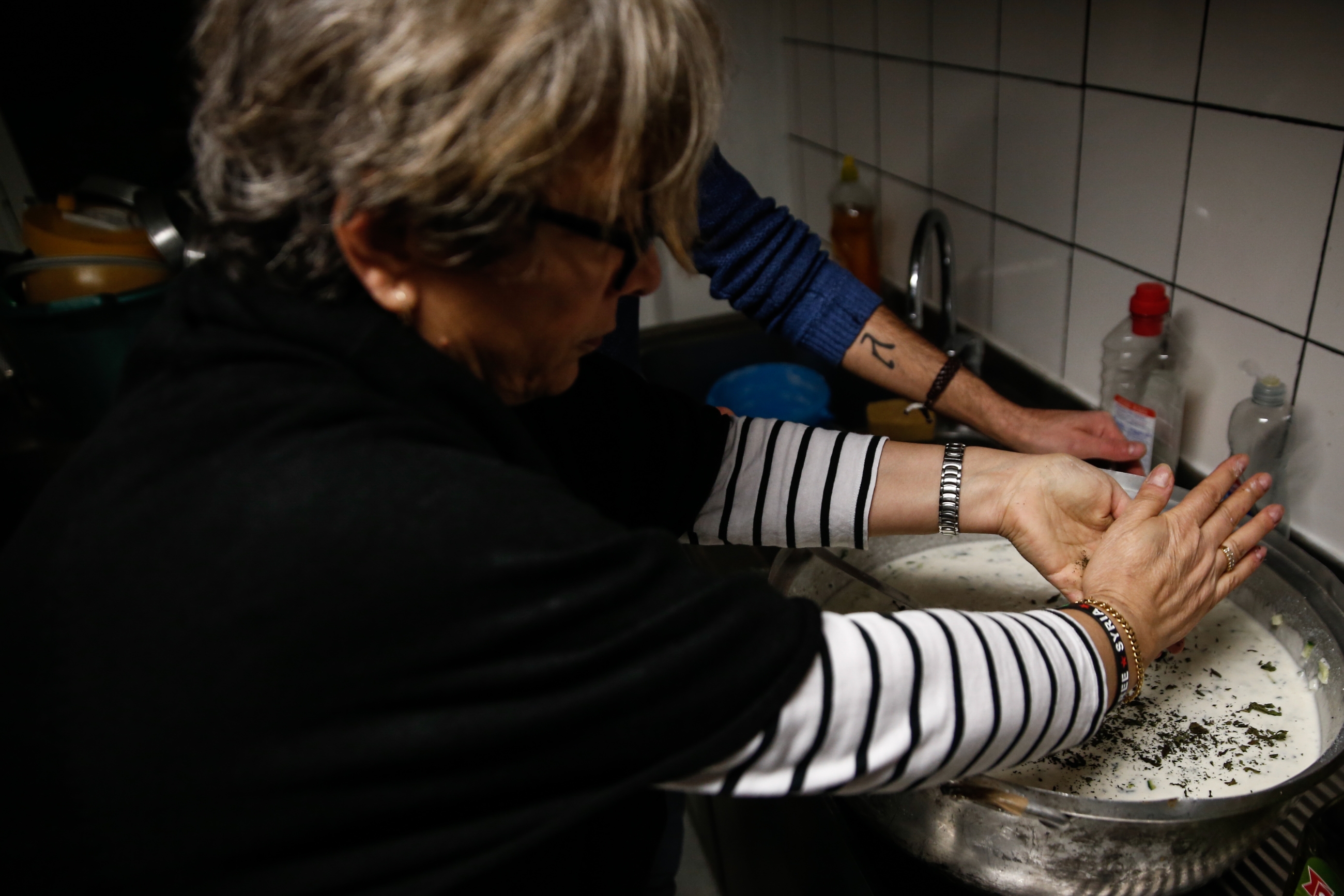
Fifty-seven-year-old Mayada left Syria in 2012 at the height of her country's conflict. She then settled in Sweden before moving to Paris in 2018, where her daughter is studying and where she is now searching for work. (MEE/Abdulmonam Eassa)
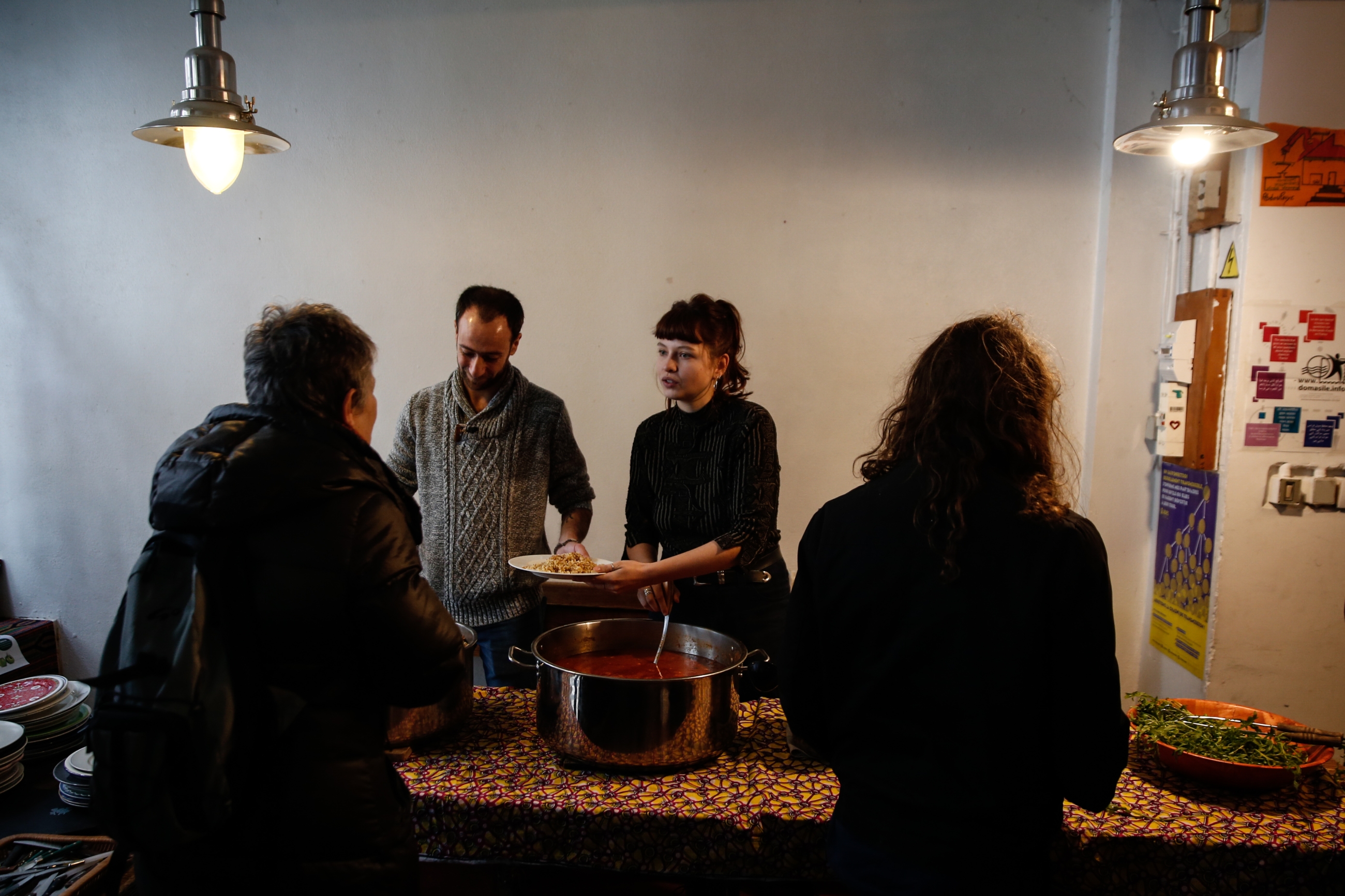
Masyaf-born Taha arrived in France in 2014. After fleeing Syria in 2013 via Turkey to the UAE, the 33-year-old moved to France as a political refugee where he is now studying political sciences at the School of Advanced Studies in the Social Sciences.
The benefits of the collaborative approach are clear, Taha says: "If the project remains limited to specific people, we will reach a dead-end, so we have many long term ideas put forward by everyone." (MEE/Abdulmonam Eassa)
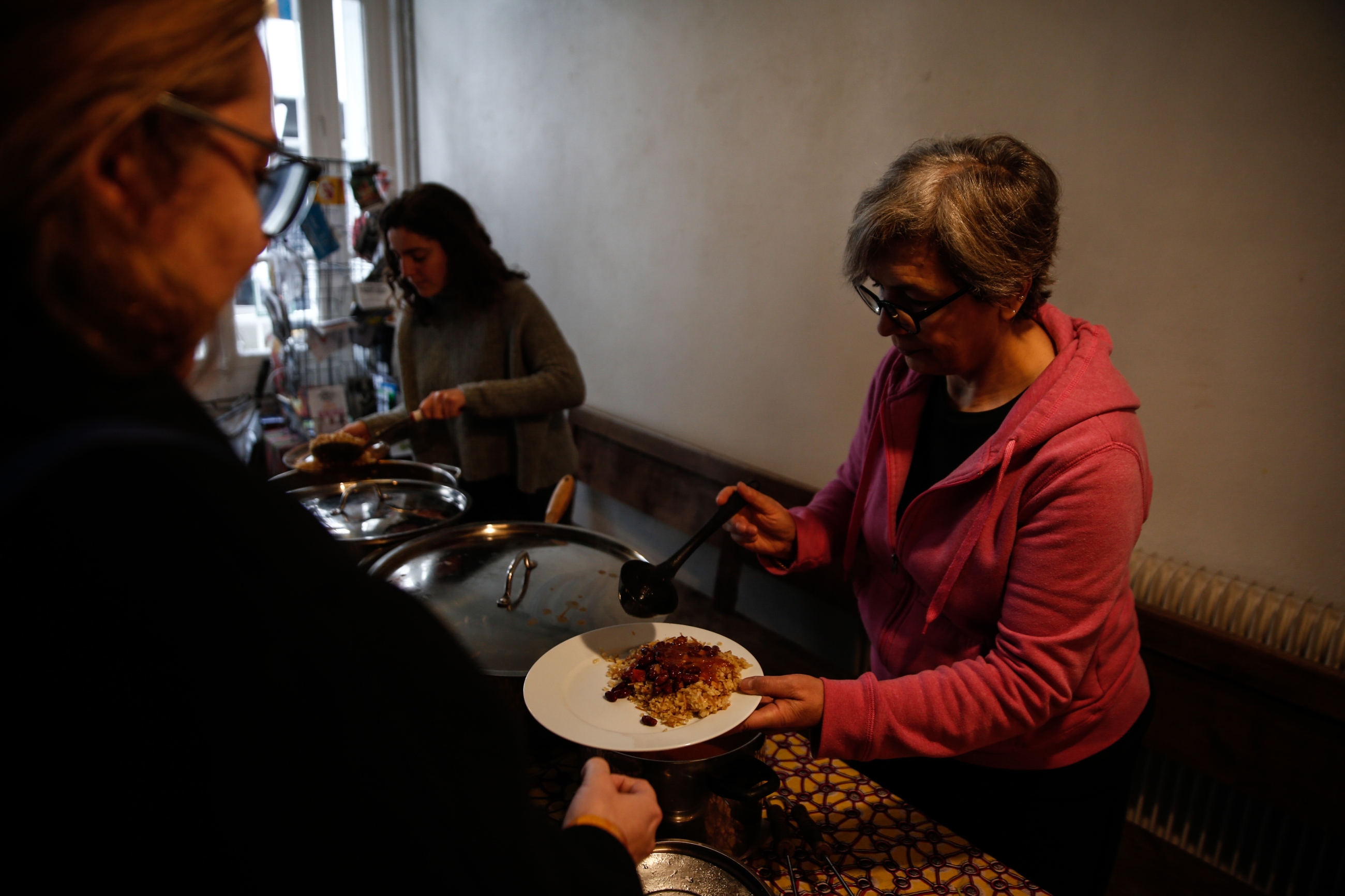
Mayada insists the canteen is not a charitable service: "We are talking here about international mutual aid and not about 'helping refugees'," she says.
Instead, they were inspired by similar associations like La Cantine des Pyrenees in the 20th arrondissement which provide a place for people, including some of the more marginalised members of society, to meet and offer each other support.
At the Syrian canteen they wanted to create a welcoming space where people could "share a meal, ideas, experiences, perspectives and hopes". (MEE/Abdulmonam Eassa)
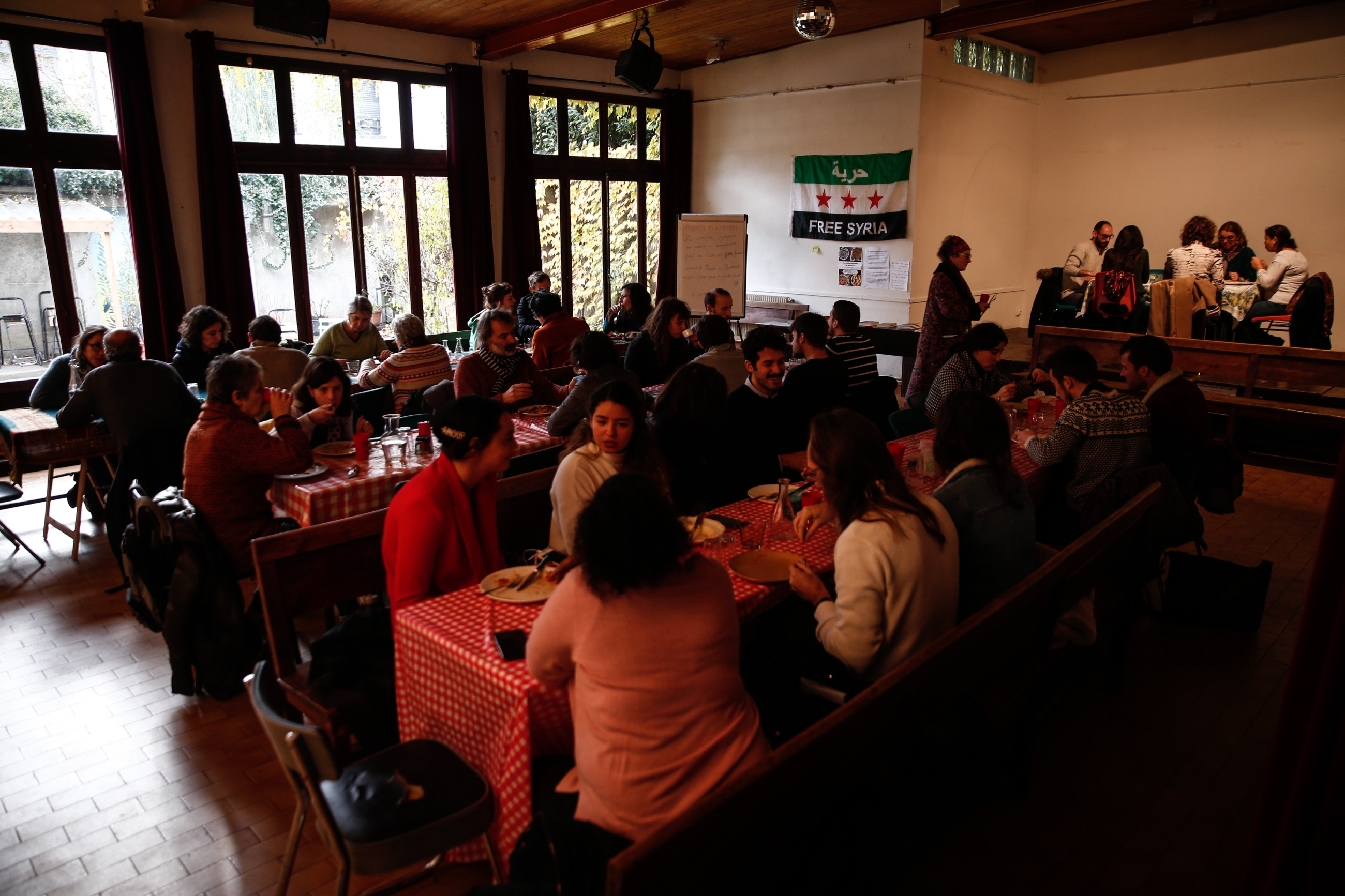
And the canteen has been popular, with dozens of people turning up every week to sample the Syrian dishes. They hope to eventually organise more regular events at an affordable cost, including concerts, talks, film screenings and language classes. (MEE/Abdulmonam Eassa)
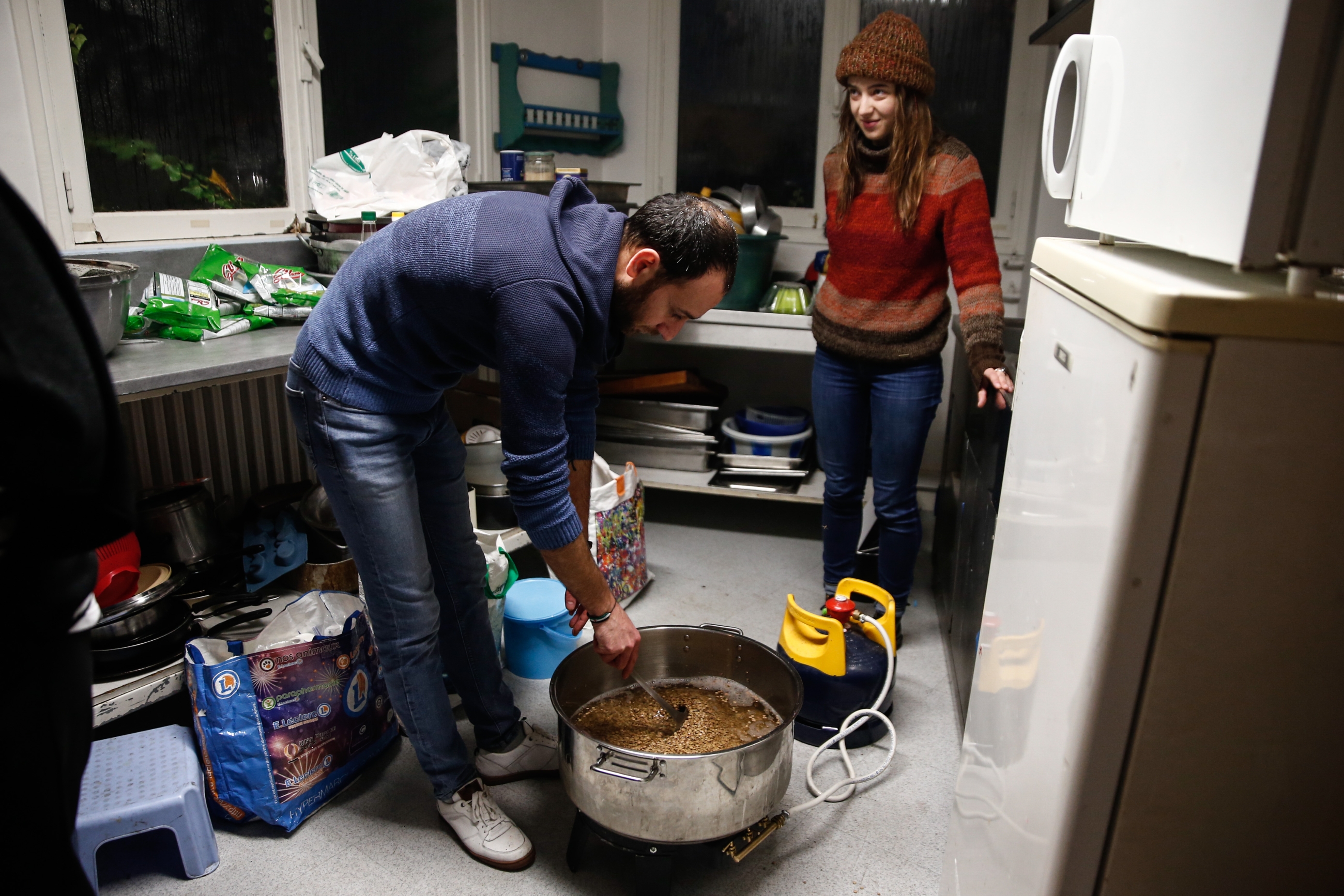
On the 15th November, the anniversary of the start of the "yellow vests" protest movement in France, Taha prepares mujaddara, a popular Syrian dish of lentils and rice to serve at a stall they have set up in the centre of town. (MEE/Abdulmonam Eassa)
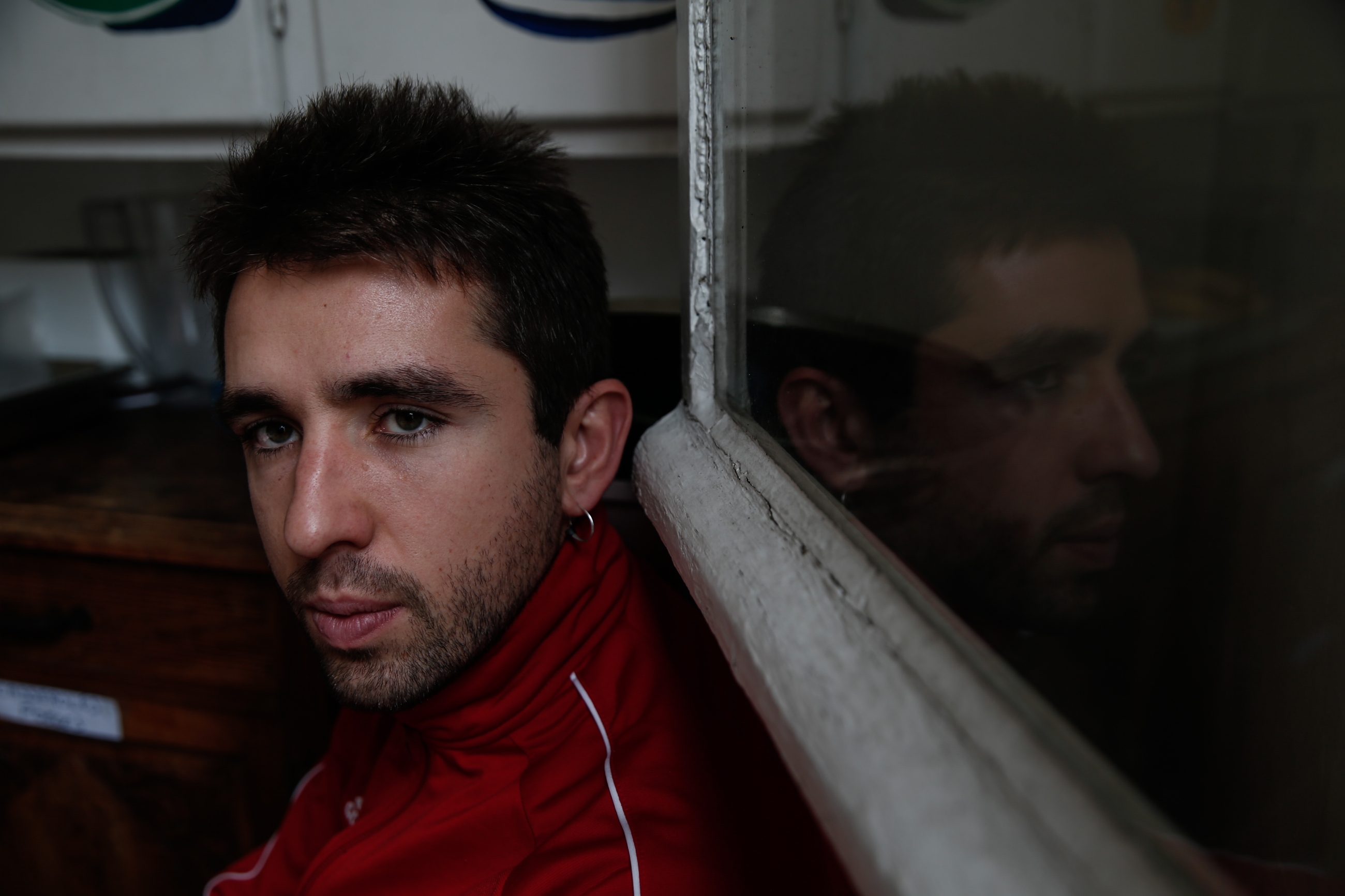
French volunteer Theo, aged 26, says people in Montreuil are keen to learn more about Syria: "The people who come here to help, or even eat, ask a lot of questions about the Syrian revolution and the war."
"All they know about Syria is just war, exile, death," he says. But the canteen is also a chance to broaden these horizons, and Theo himself is proud that he has already learnt how to cook a number of Syrian dishes well. (MEE/Abdulmonam Eassa)
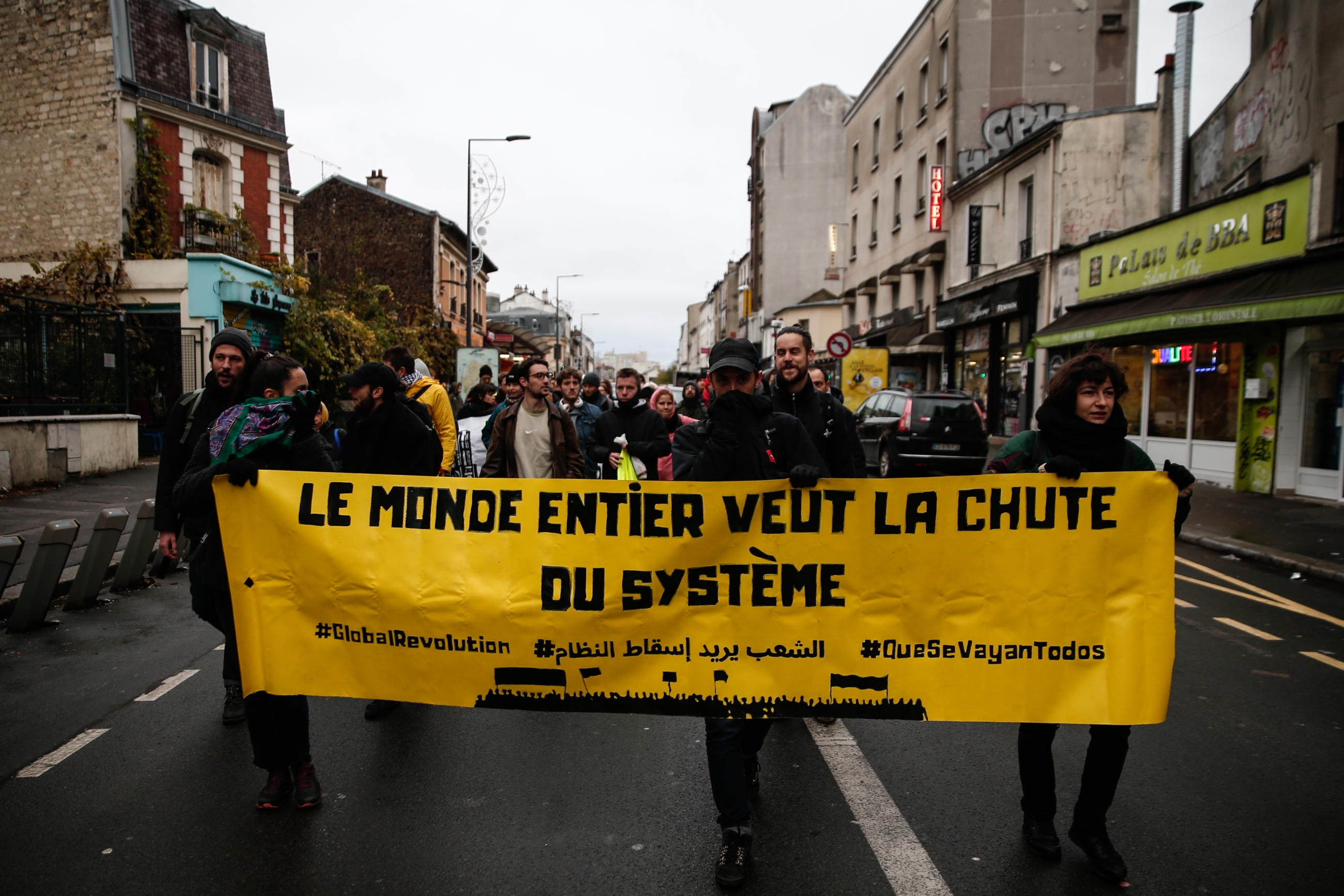
On a rainy 15th November, protesters gathered near Montreuil city hall to mark the one year weekend anniversary of the start of the gilets jaunes, or yellow vests anti-government protests.
Some of the country's new Syrian community took part in the demonstrations, including 27-year-old Paris-based Ashtar. "I participated in this movement because after my experience in the Syrian revolution, for the first time I felt like I am in a democratic country," she said. "But I found later the opposite... the whole world lives in poverty and oppression." (MEE/Abdulmonam Eassa)
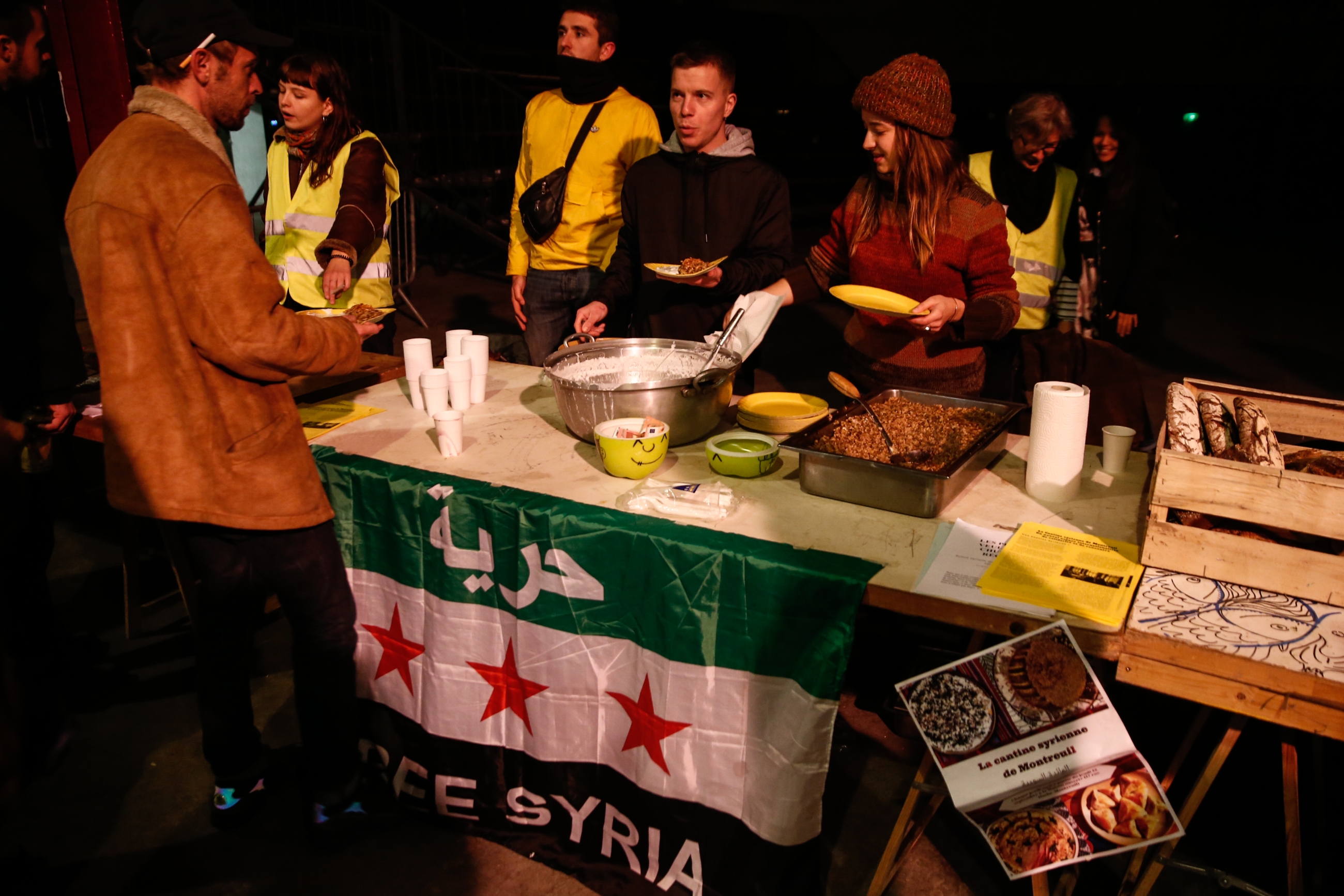
Volunteers from the canteen served the dishes they had prepared earlier to protesters, finding another forum to answer questions about Syria and meet new people.(MEE/Abdulmonam Eassa)
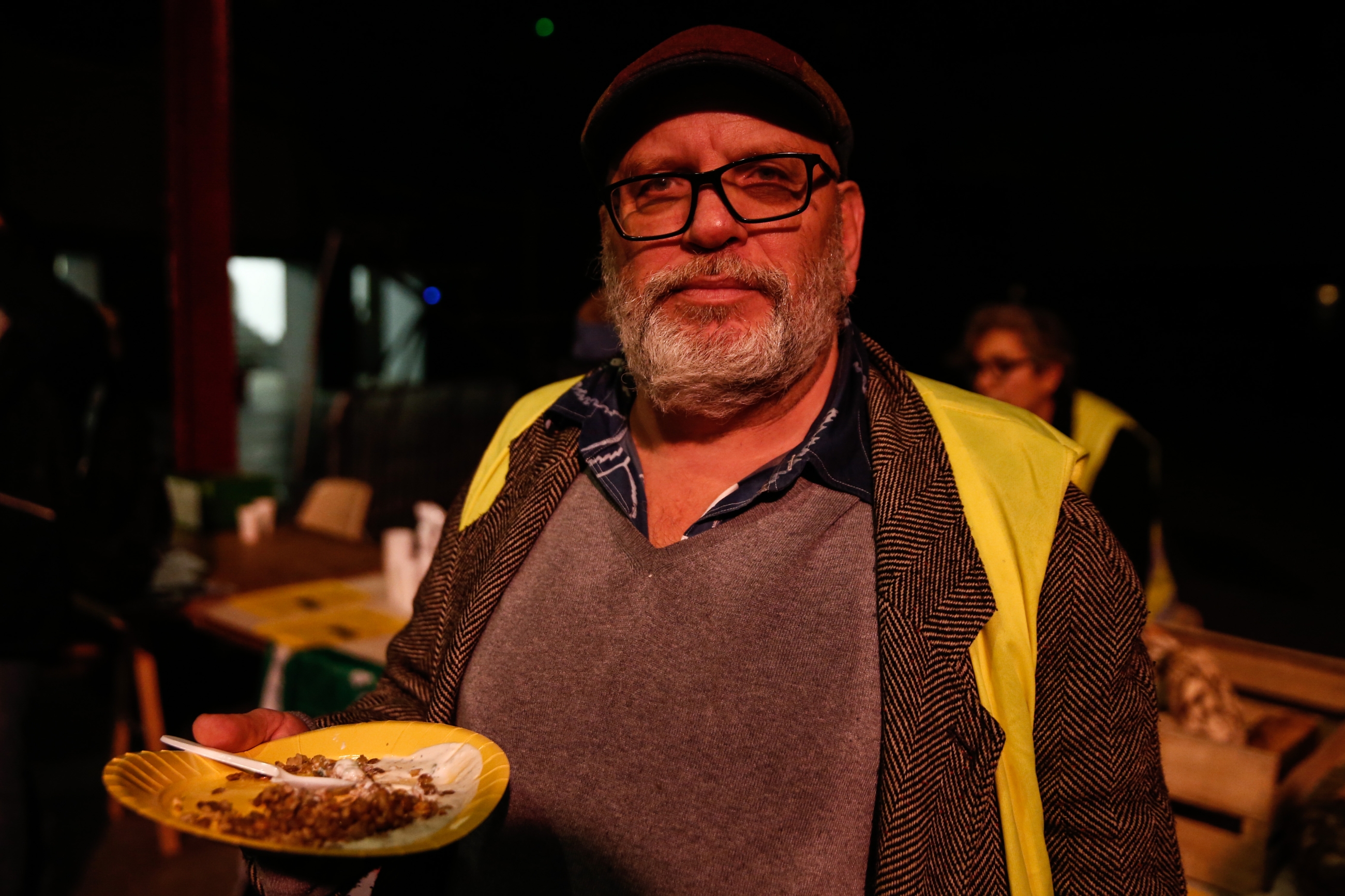
One of their newest customers, 56-year-old Laurent, says the Syrians he's met “have a big heart".
"I went to Syria many times before 2011, I knew how great the people there are," Laurent says. "But it’s amazing how they still engage in exile. At the end of the day, we must come together to solve our problems." (MEE/Abdulmonam Eassa)
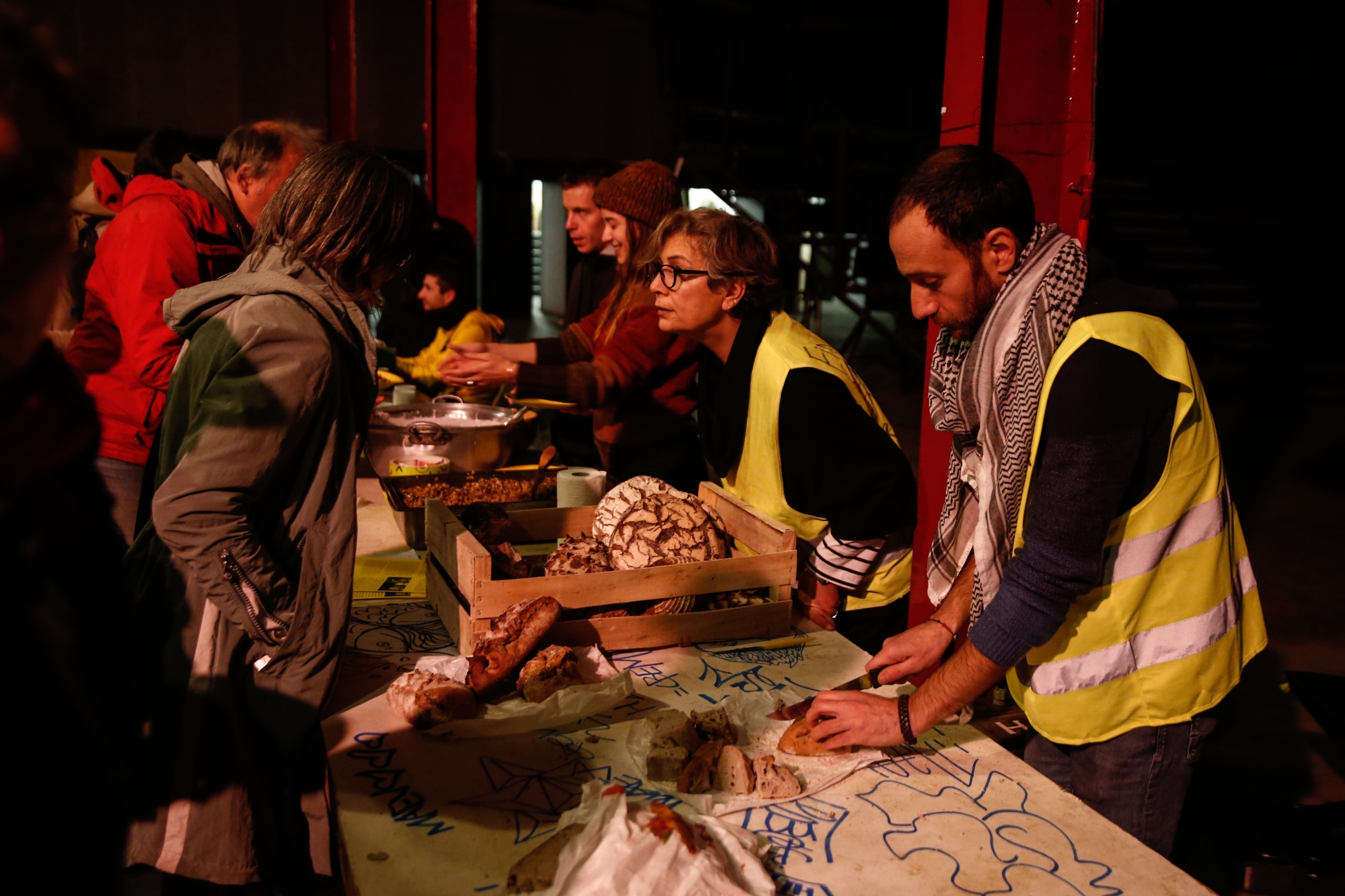
Their main objective, Mayada says, is to exchange experiences, learn about each others' cultures, and build a new life in exile. "We left our country through a lot of sadness, but we have to build a new life, meet new people in our exile as we are doing now. Wherever you go there are beautiful people." (MEE/Abdulmonam Eassa)
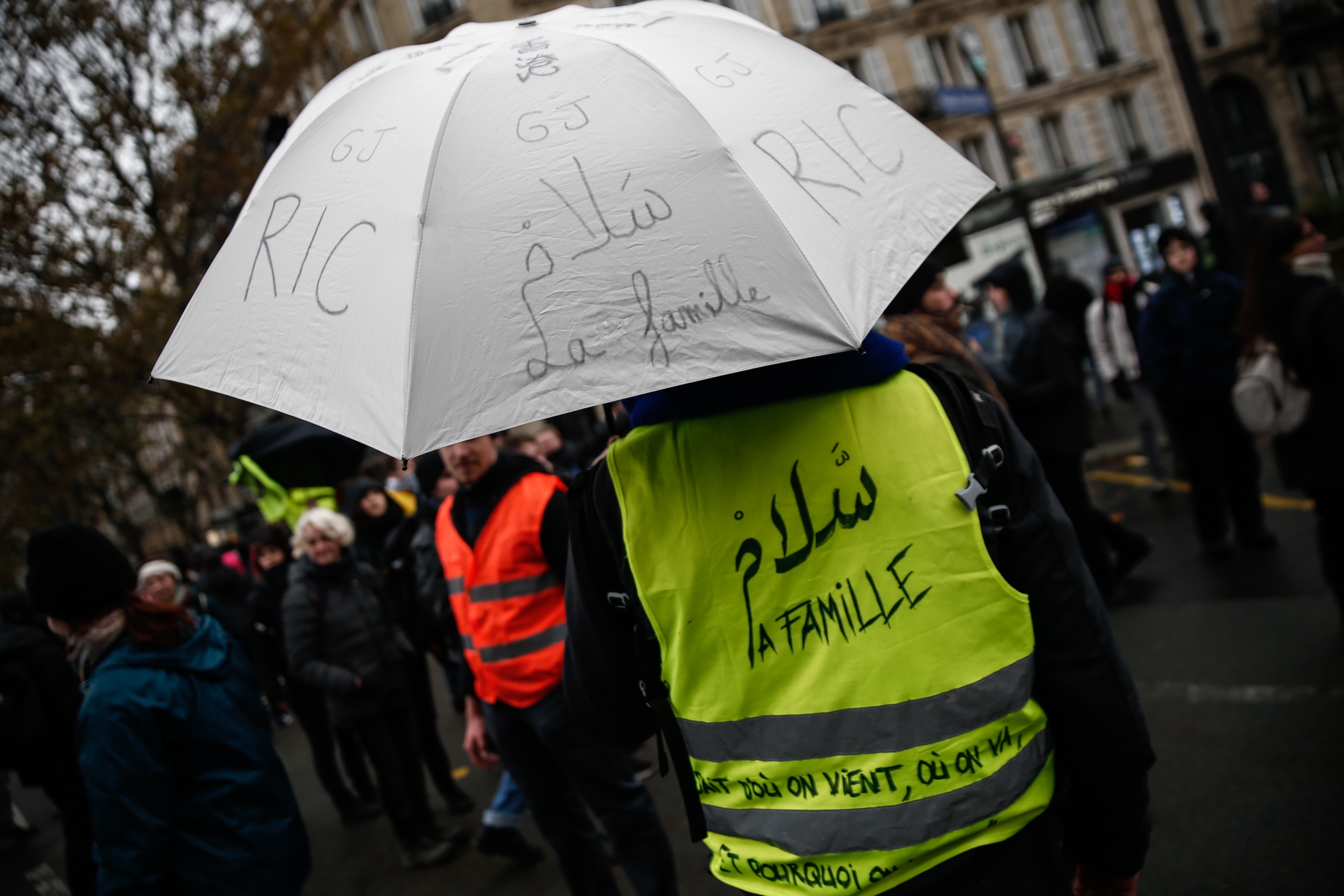
An activist back in Syria and now also in his new hometown, Taha joined in the yellow vests protests, wrapped in a Syrian flag. He says a French protester asked him if it was the flag of terrorists, to which he replied: "If it is then I shouldn't be here."
Despite the efforts of some of this Parisian neighbourhood's small Syrian community, the road to integration is long, yet they persist in making even the smallest of steps. “It’s sad that there are people who still don’t know the reality in my country,” Taha says. "[But] I am happy walking with friends in the protest." (MEE/Abdulmonam Eassa)
Middle East Eye delivers independent and unrivalled coverage and analysis of the Middle East, North Africa and beyond. To learn more about republishing this content and the associated fees, please fill out this form. More about MEE can be found here.


